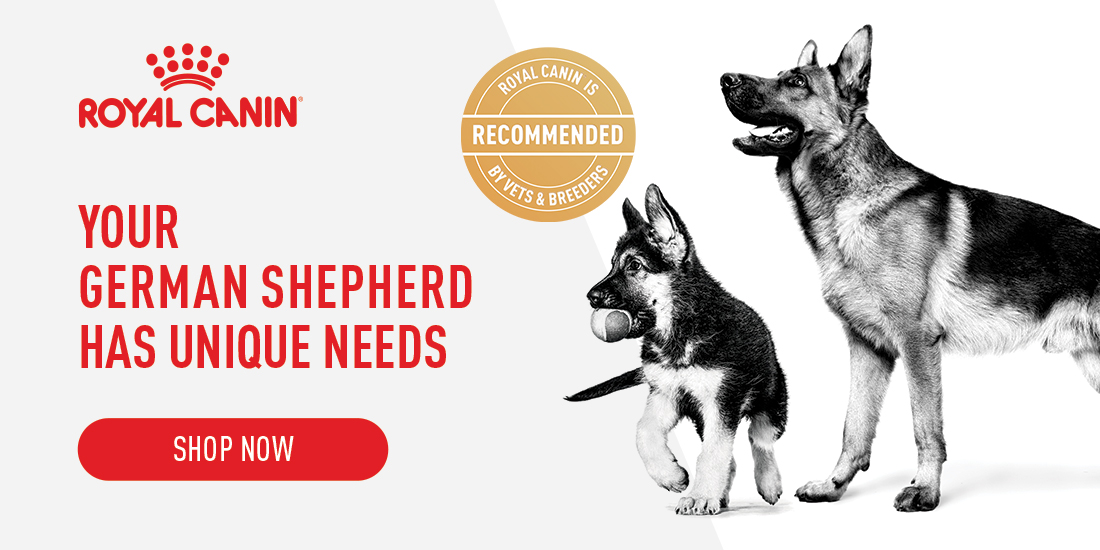Dog Breed
German Shepherd
Freindliness
Exercise Needs
Health Issues
Barking Tendencies
Grooming Needs
Shedding Level
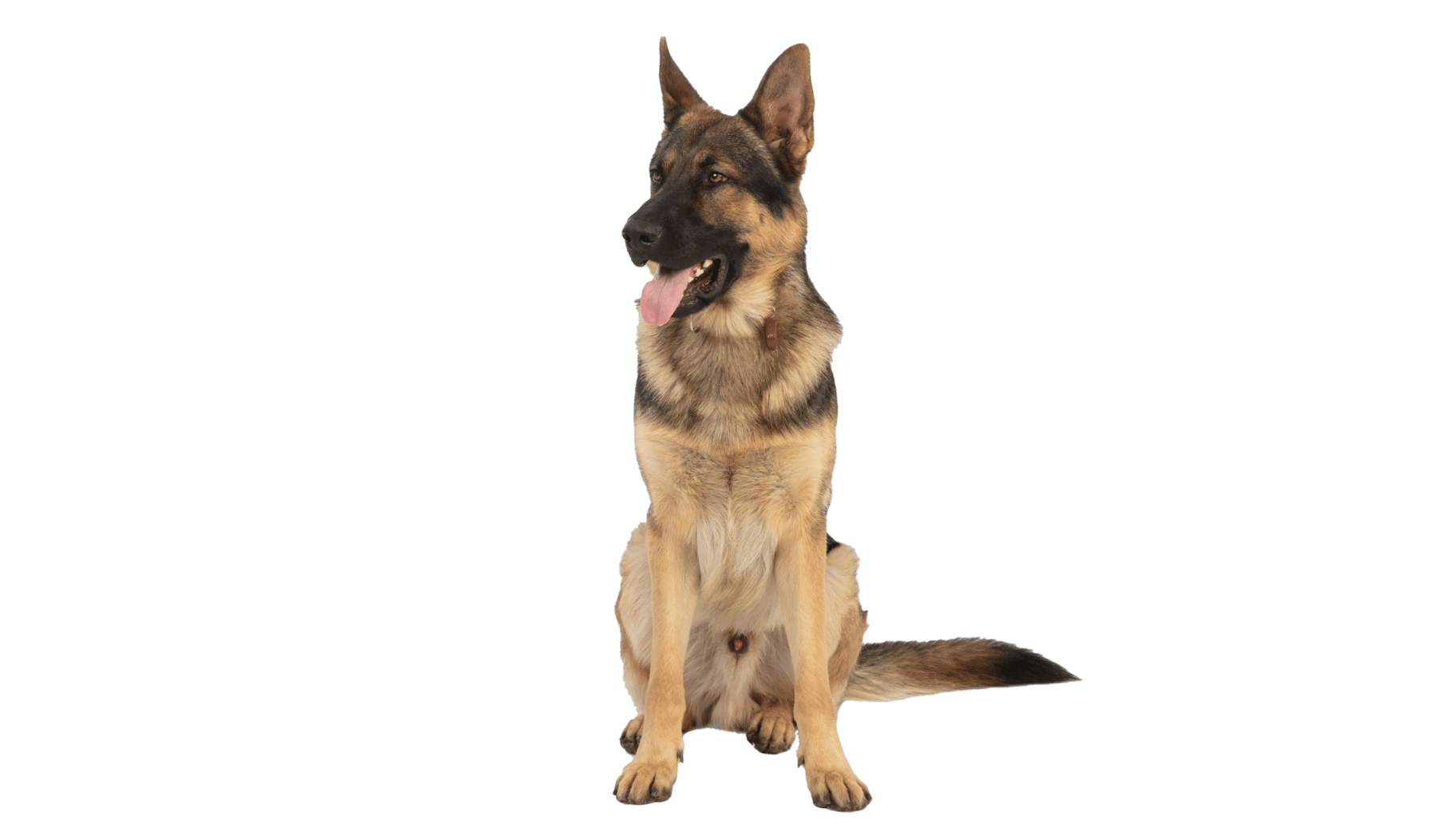

Fearless friend
Best known in New Zealand for serving alongside our police, most patrol dogs are German Shepherds. Their love of tracking a scent means they are mainly used to track and search for people however many of them are also trained for narcotic detection work and are deployed alongside the Armed Offenders Squad.
This may leave you wondering: do they make good family pets? Absolutely. While these clever canines are often working dogs they also make loving family companions when matched with families that understand their needs.
Caring for your German Shepherd
Nutrition
Choosing the right food
Every dog is unique. From the small, flat-faced Pug to the obesity-prone Labrador Retriever. ROYAL CANIN® Breed Health Nutrition is tailor-made to address the unique needs of pure breed dogs. These breed specific formulas benefit from the latest ROYAL CANIN® research on the selection of the best protein sources, unique nutrients and tailor-made kibbles.
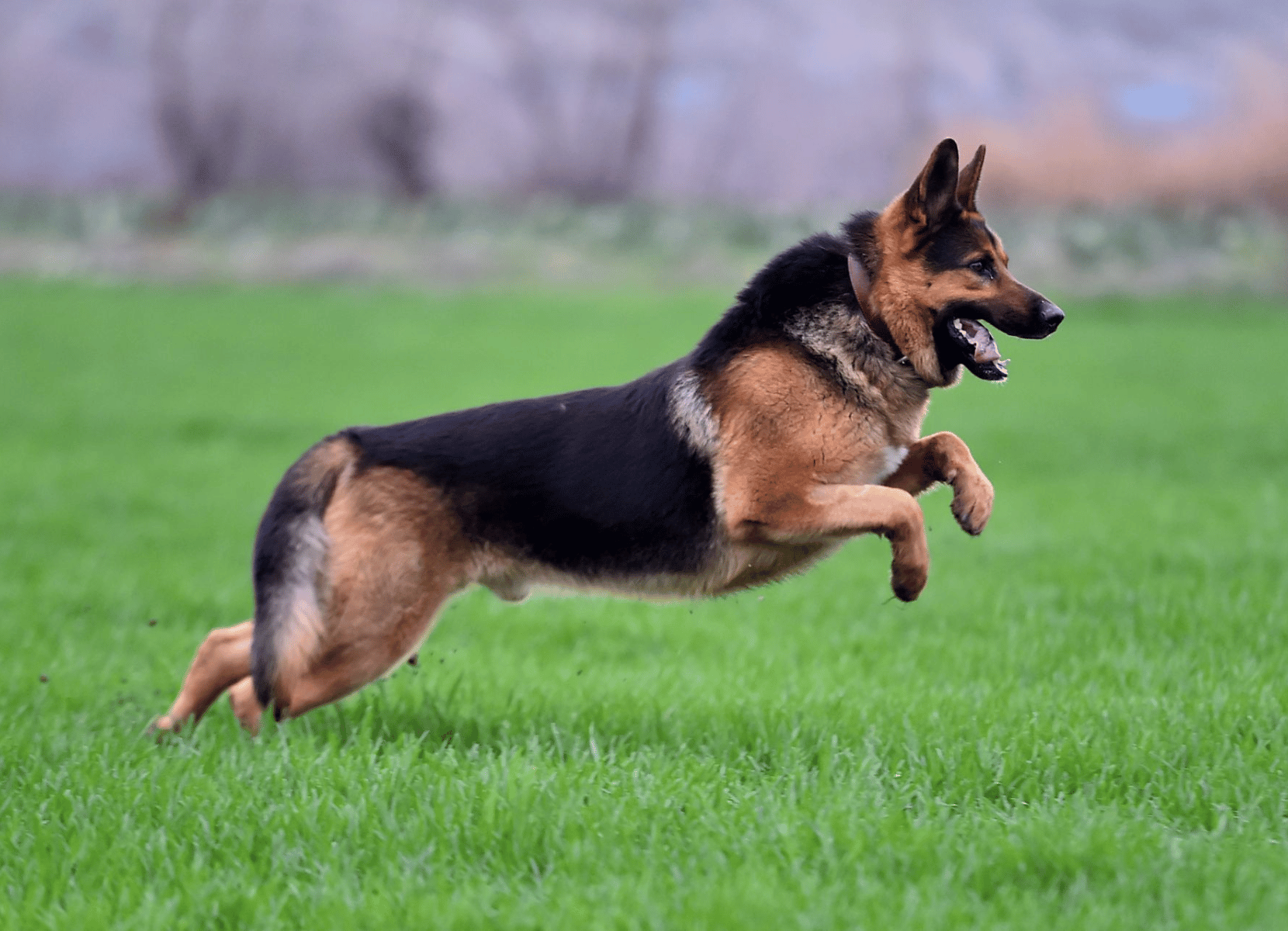
Exercising your dog
The smart and active German Shepherd Dog breed requires a lot of daily exercise, both physical and mental. Plan to spend at least 45 minutes of every day with your adult German Shepherd vigorously walking or running, playing games and/or training.
Invest in a good quality harness and lead such as these from the EzyDog range. If your German Shepherd enjoys water, teach them to swim (they are not natural-born swimmers) for a fantastic low-impact exercise.
Exercises such as agility, herding or flyball provide both physical and mental exercise for this intelligent and agile dog. Then you can supplement with interactive dog toys, learning tricks and playing games like hide-and-seek.
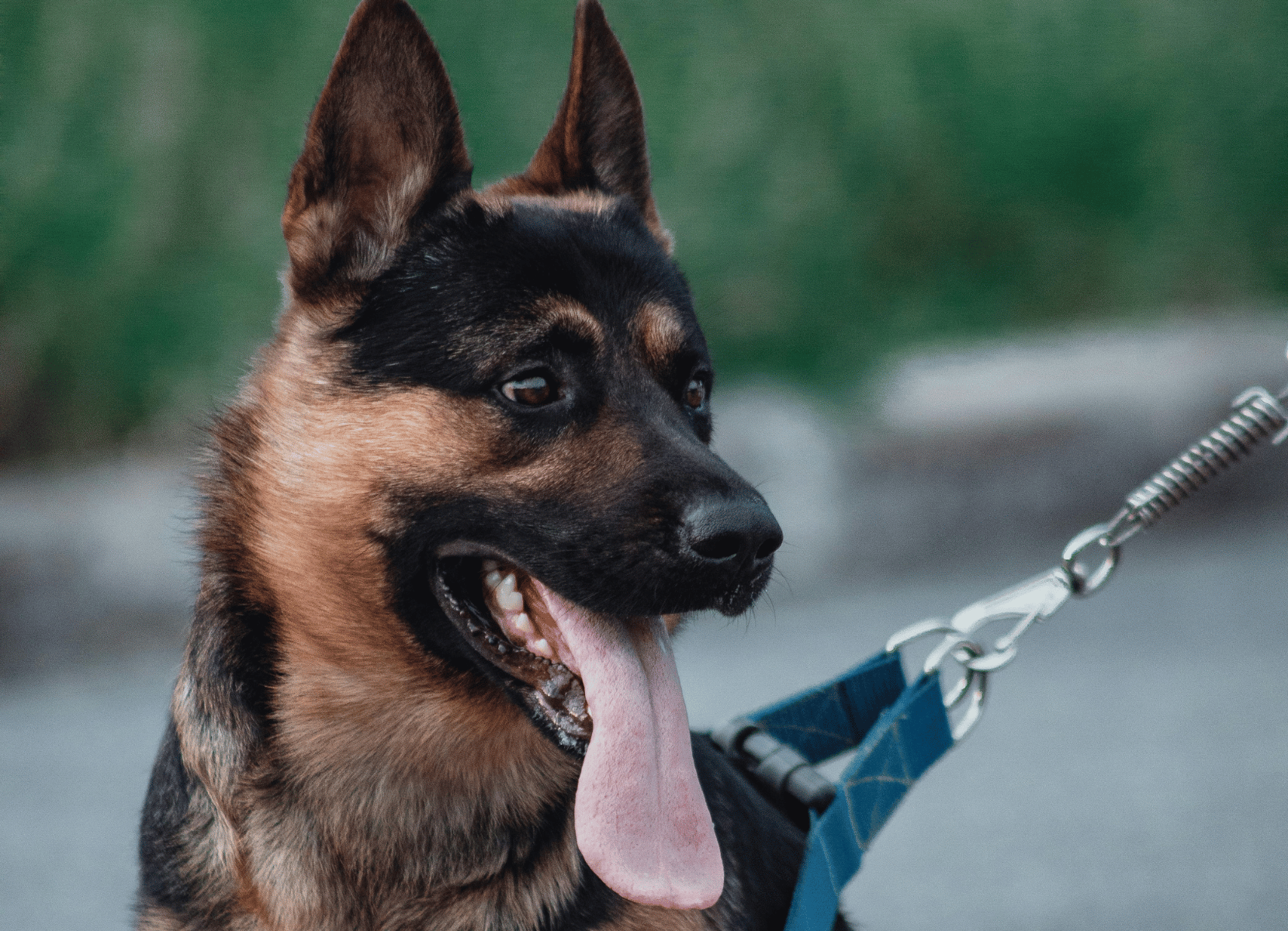
Training your German Shepherd
To make the most of their innate skills, it’s best to begin German Shepherd training during puppyhood. Like all dogs, German Shepherds should be trained using gentle, dog-friendly, positive-reinforcement training.
German Shepherds are eager learners that pick up new skills quickly, which allows handlers to speed through the German Shepherd training process. Have some healthy treats on hand as a special reward.
Thanks to their breeding, German Shepherds are creative thinkers and they require consistent and ongoing education to keep them constructively engaged.
Challenge their mind and their body, and keep them happy, healthy and active.
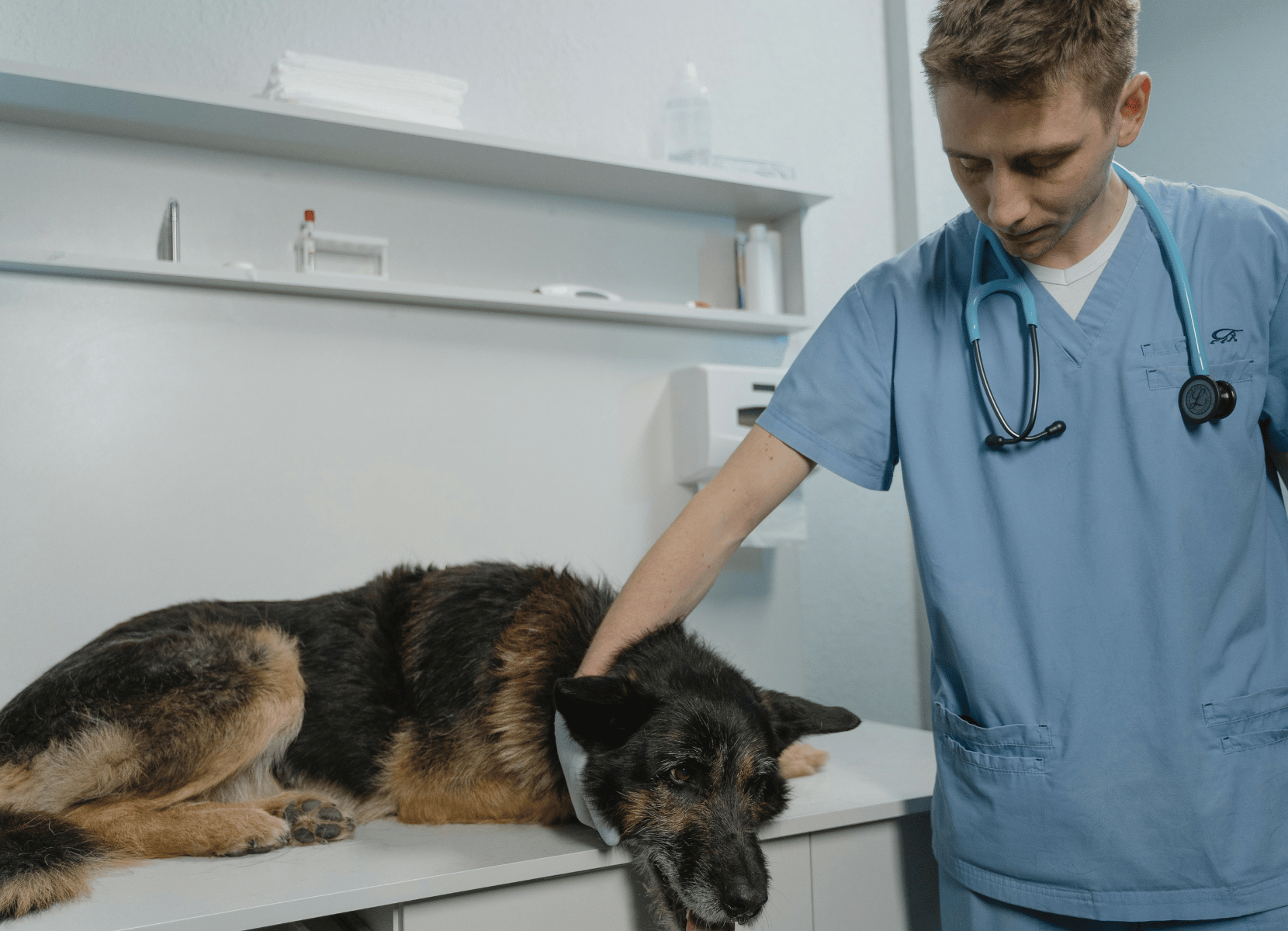
Your dog's health
By recognising health problems in German Shepherds early you can seek advice and treatment from a veterinarian.
Reduce the risk of health problems by purchasing a puppy from a responsible breeder. Always inspect breeding facilities and breeding dogs, and never buy from a distant online seller.
Health Issues to watch out for:
Joint Dysplasia
Bloat
Degenerative Myelopathy
Megasophagus
Perianal Fistula
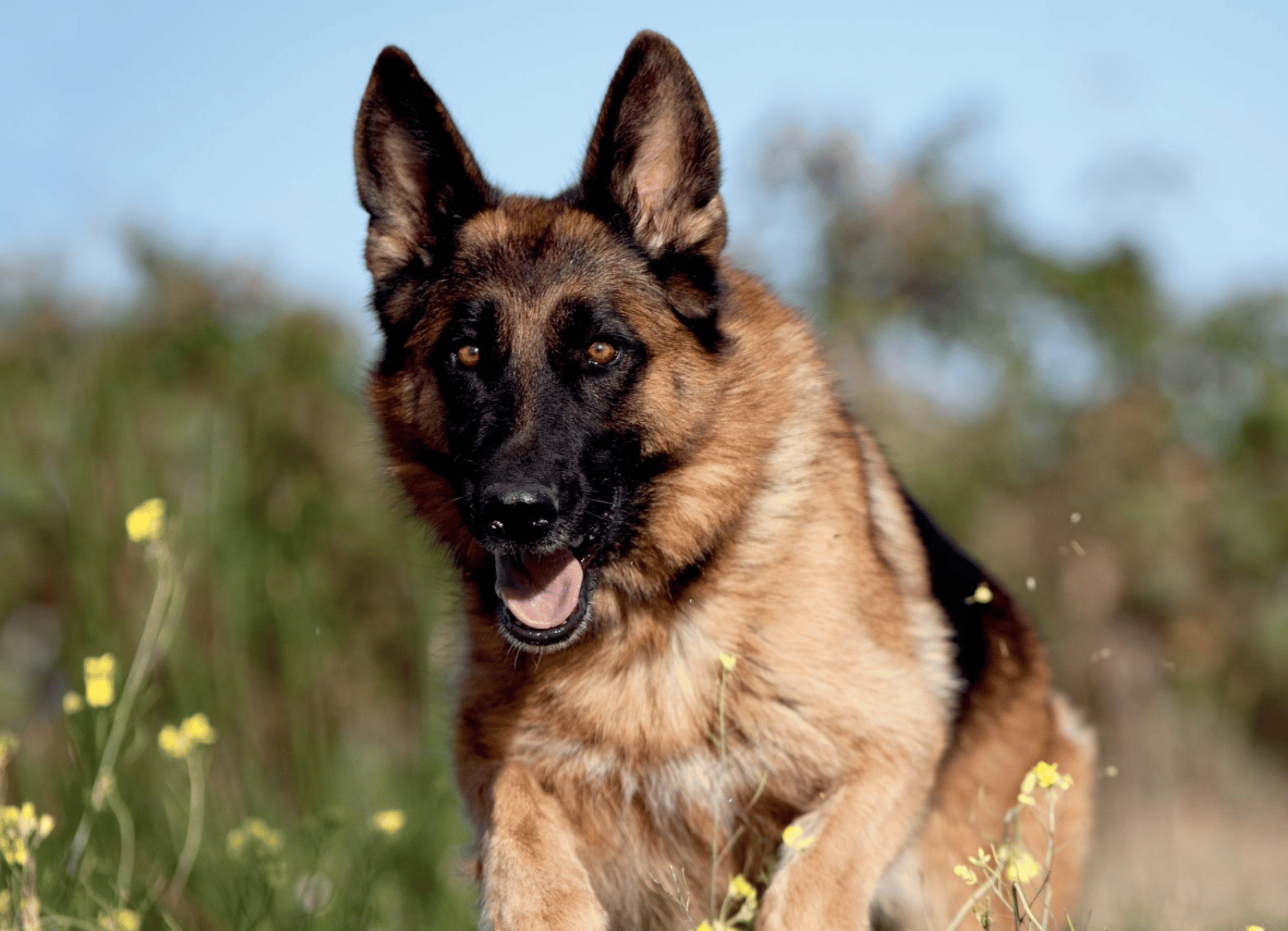
Grooming your dog
Be forewarned: German Shepherd shedding is moderate—but also continuous. They also shed heavily twice a year.
To reduce shedding, brush your German Shepherd several times a week, and daily during the heavy shedding times. Using a deshedding tool or rake will be essential during molting.
Bathing a German Shepherd, unless the dog is heavily soiled, is only recommended once a month. Clipping a German Shepherd is not recommended. Nails should also be trimmed regularly, and teeth brushed to keep them clean.
Key characteristics of German Shepherds
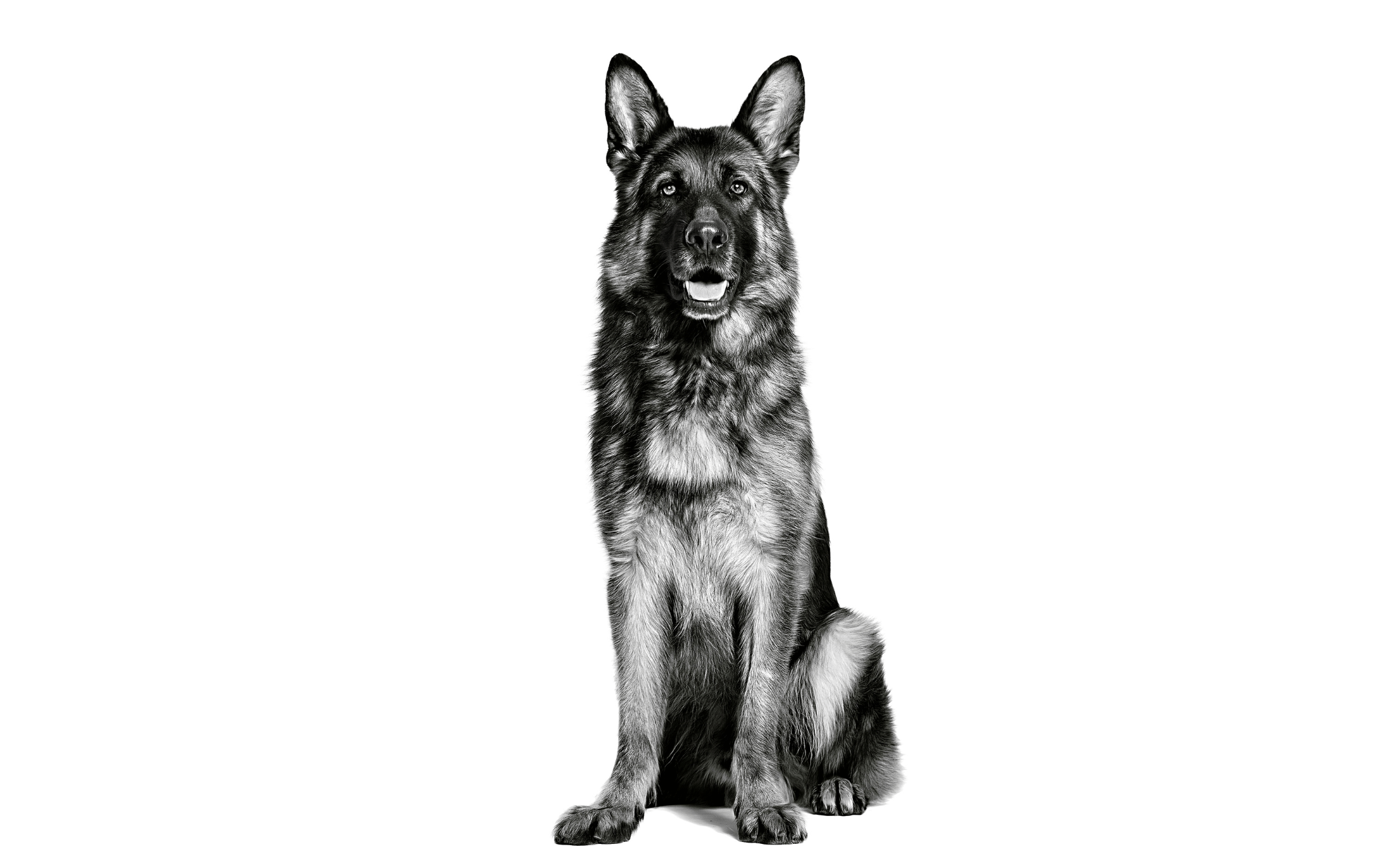
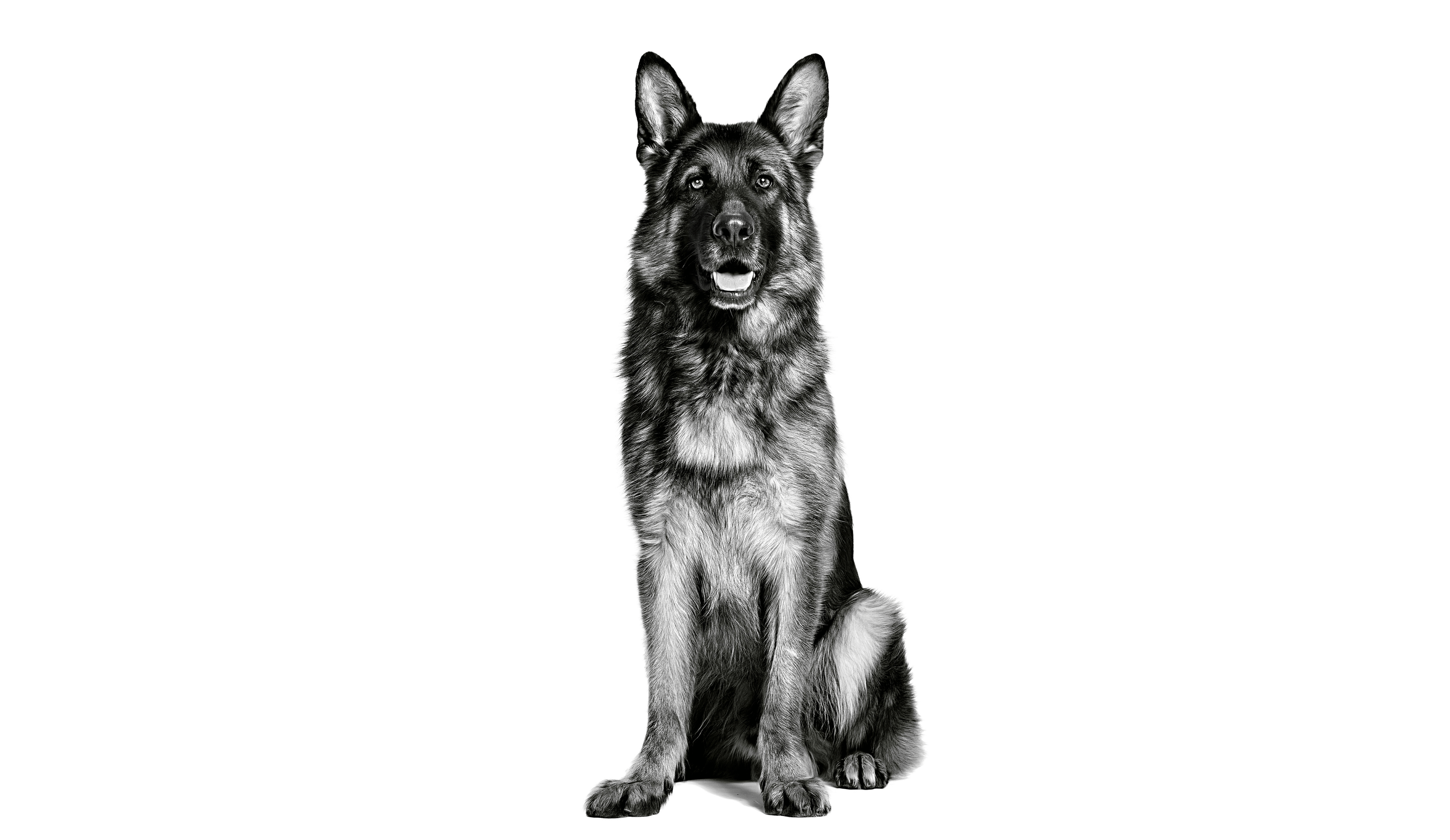
German Shepherd FAQs
Known for their loyalty, intelligence, and working dog credentials, German Shepherds are one of New Zealand’s most popular large breeds. Below are answers to commonly asked questions that explore life with a German Shepherd beyond the basics.
Do German Shepherds make good guard dogs?
Yes, German Shepherds are naturally protective, alert, and loyal — traits that make them excellent guard dogs. With the right training and socialisation, they can distinguish between real threats and everyday visitors, offering both companionship and security at home.
Are German Shepherds good with other dogs and pets?
German Shepherds can get along well with other dogs and household pets if they’re socialised from a young age. Their herding instincts may show around smaller animals, but consistent training helps encourage calm, respectful interactions.
How much space does a German Shepherd need?
German Shepherds are large and active dogs that thrive in homes with access to outdoor space. While they can adapt to urban living, they need daily exercise and mental stimulation — ideally in a secure yard or frequent off-leash parks.
Can German Shepherds be left home alone?
Adult German Shepherds can be left alone for a few hours, but they don’t cope well with long stretches of isolation. Without mental or physical engagement, they may become anxious or destructive. Puzzle toys, enrichment feeders, and doggy daycare can help when you're away.
What is the difference between working-line and show-line German Shepherds?
Working-line German Shepherds are bred for endurance, drive, and performance in roles like policing and search-and-rescue. Show-line Shepherds tend to have more angulated backlines and are often bred for temperament and appearance. Both types need training and exercise, but working lines may have higher energy levels and drive.
These extra FAQs offer a deeper look into what it’s really like to live with a German Shepherd — from their loyalty and protective instincts to their space and social needs. If you’re looking for a devoted companion who’s smart, brave, and always ready for action, this breed might be the perfect fit.




